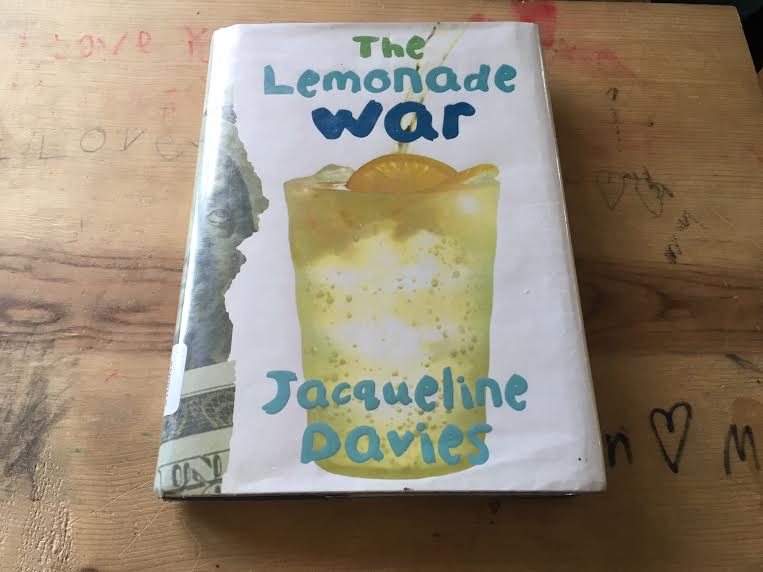
by Rachel Toalson | Books
If you’re not as entrenched in the kid-lit world as I am, you might be wondering what early readers are. Early readers are a bridge between picture books and middle grade readers. They’re sometimes referred to as chapter books. There’s some debate as to what characteristics these books have, but here’s how I usually distinguish them: early readers are closer to picture books with not a whole lot of text but more than what would be found in a picture book. Chapter books sometimes have pictures and sometimes don’t.
Jaden Toussaint, the Greatest Episode 3: The Muffin Wars, by Marti Dumas, definitely fell into the early reader category for me, with charming illustrations and simple language that an emerging reader would understand. This was the first of the Jaden Toussaint books that I read, and I was immediately hooked. Jaden has a great personality and is so fun to get to know throughout the book.
In Episode 3 of the Jaden Toussaint series, Jaden’s cousin, Muffin, is coming to visit. He’s excited, but the problem is that she’s just as awesome as he is—maybe even more so. He feels a little threatened by her awesomeness, actually. So he sets out to try to prove that he’s better at something than she is.
The Muffin Wars is full of humor, personality and wisdom. I think early readers will identify with Jaden in his quest to be the best at everything and in the lesson he ultimately learns.
The Lemonade War, by Jacqueline Davies, is a chapter book for readers a little farther along the reading spectrum than Dumas’ Jaden Toussaint series. The Lemonade War is actually a book I picked up because my 9-year-old read it in class last year, and he put all of Davies’ other books in this series on his summer reading list this year. So I wanted to find out what had drawn him so deeply into the series. And once I read The Lemonade War, it was easy to see.
The book is about a brother and sister duo, Jessie and Evan, who are out for the last days of their summer break. Evan is mad at Jessie for a reason she can’t understand. The book is told from both of their points of view, so we get to understand what she doesn’t—and the reason he’s mad is that Jessie is skipping the third grade and will be joining his fourth grade class once school starts. So now he’s afraid that she’s going to embarrass him—but not for the reasons you might think. And I’m not going to give away any spoilers.
So instead of joining together to sell lemonade, Jessie and Evan have a war—whoever makes the most money at a lemonade stand will get to take the other’s money. The book is full of all their efforts to create a successful lemonade stand.
I love that The Lemonade Wars was full of marketing and business advice that Jessie and Evan used for their entrepreneurial efforts. I also love that Jessie and Evan were entrepreneurial kids. You don’t see that a whole lot, and now I understand why my son wants to do a lemonade stand or an art stand or a selling-Minecraft-ideas stand every day. It’s encouraging for kids to read about other kids who are taking initiative and creating their own businesses.
What I loved most about The Lemonade Wars was the bond between Jessie and Evan, even though the whole premise of the novel is that they’re fighting. But even in their fighting, it’s clear to see that they care about one another. They have a competition that actually serves to bring out the creative side of both of them and helps them realize that even though they may have completely different abilities and strengths, they are still valuable to the world.
Here’s my favorite line from the book:
“On good days, Jessie’s mom called her persistent. On bad days, she told her she just didn’t know when enough was enough.”
I love this, because it sounds a whole lot like my 9-year-old.
I hope you enjoyed these book recommendations. Be sure to pick up a free book from my starter library and visit my recommends page to see some of my favorite books. If you have any books you recently read that you think I’d enjoy, contact me. I always enjoy adding to my list. Even if I never get through it all.
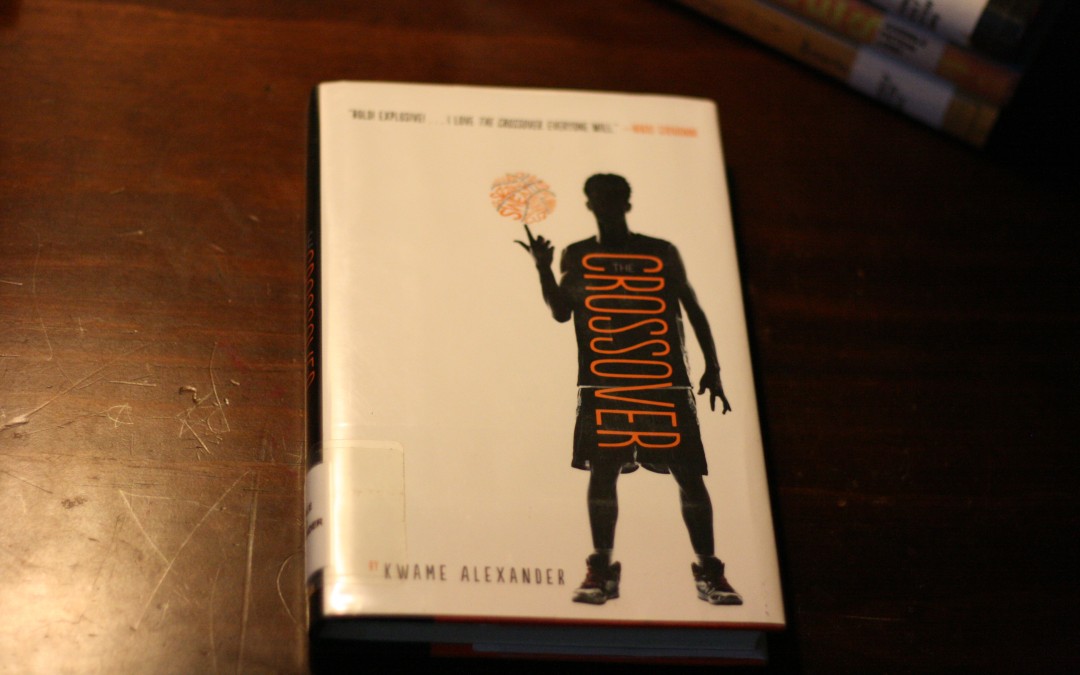
by Rachel Toalson | Books
I first discovered Kwame Alexander when I stumbled upon his newest middle grade book, Booked, which was on my library’s display shelf. I talked about this book a few weeks back, but today I wanted to talk about another Kwame Alexander book called The Crossover, which was a 2015 Newbery Medal winner and also a 2015 Loretta Scott King Honor Award winner. The Crossover is written in verse, just like Booked, but in a much different style and with a much different story.
Twelve-year-old Josh Bell and his identical twin brother, Jordan, are basketball stars in their middle school. Josh fancies himself a rapper, and during game times, the poetry he produces has the flow of a spoken song. It’s fantastic.
The Crossover tells the story of Josh and Jordan, who are coming to terms with growing up and falling in love and trying to discover who they are outside of each other. It’s full of emotion and angst and has the kind of climax that you won’t ever forget.
When I talked about Booked, I mentioned that I probably won’t let early readers read that one. The same is true with The Crossover, but for different reasons. While Booked contained some words I wasn’t comfortable with my younger readers reading, The Crossover contains some mature content like death and romance, which my 9-year-old isn’t really all that interested in yet. But this one will probably be on his summer reading list next year, because, in our house, we have identical twins, and I loved how much insight The Crossover provided for that bond between brothers and, especially, how that bond changes as they begin to grow into their own separate people.
If you can’t already tell, I absolutely loved this book. Josh and Jordan were such likable kids, and I enjoyed the banter between the two when they were out on the court and ribbing each other, talking trash that didn’t really mean anything because it was all done in love. Josh’s voice was smart and engaging and, most of all, lovable. The book was a fast read and included some phenomenal poems about a thing you don’t usually think could look much like poetry—sports. Alexander did a wonderful job of bringing basketball to life with Josh.
There are too many quotes from this book to read them all, but here is one of my favorites:
“Sometimes it’s the things that aren’t said
that kill you.”
It’s true, isn’t it? Silence is the worst. And Josh has to deal with silence when he and his brother get into a pretty epic fight and don’t speak to each other for a while.
I hope you enjoyed this book recommendation. Be sure to visit my recommendation page to see some of my best book recommendations. If you have any books you recently read that you think I’d enjoy, get in touch. And, if you’re looking for some new books to read, stop by my starter library, where you can get a handful of my books for free.
*The book mentioned above have affiliate links attached to them, which means I’ll get a small kick-back if you click on them and purchase. But I only recommend books I enjoy reading myself. Actually, I don’t even talk about books I didn’t enjoy. I’d rather forget I ever wasted time reading them.
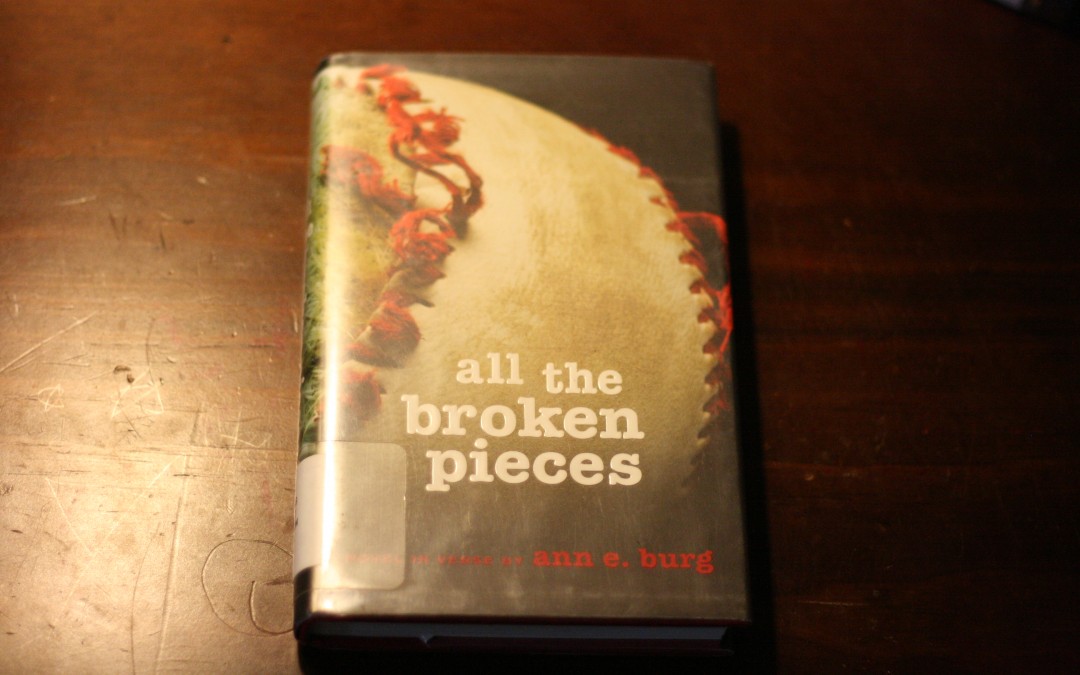
by Rachel Toalson | Books
If you’re looking for a great young adult read, look no further than All the Broken Pieces, by Ann E. Burg—an award-winning young adult novel written in poetry that was just beautiful.
I picked up All the Broken Pieces because a book I was reading mentioned it. I’m a sucker for books written in verse, and when I saw what this one was about, I knew I had to add it to my list. Usually, when something gets added to my list, it takes me a while to get to it, but novels in verse have a little bit more priority.
All the Broken Pieces is about a boy named Matt Pin who comes to live in the states after suffering some of the horrors of the Vietnam War. He carries around scars that he tries to keep hidden, because they’re shameful and frightening and too horrible to speak aloud. Throughout the book, Matt is faced with discrimination, the flare of his memories, fear of abandonment and loneliness created by the secrets he tries to keep inside. But he is forced to confront his nightmarish past and choose between blame or forgiveness and fear or freedom.
This story was only about 22,000 words, which is short for a young adult novel, but it was full of hope and heart and history—proving that you don’t need a whole lot of words to write a beautiful book. That’s probably what I loved most about it.
Burg employed a sort of mystery around Matt’s past that kept a reader engaged and interested in what was going to happen to Matt. There was also some tension on his baseball team when a boy told Matt that his brother died in the war because of Matt. The words, “My brother died because of you” are never easy words to hear, and Matt believed his teammate for a time.
Matt is an endearing character—readers feel sorry for him and yet we also root hard for him, because we love him and his innocence and his sadness. All the Broken Pieces was Burg’s debut novel and was beautiful, harrowing and an important contribution to the young adult genre.
Here’s a passage that demonstrates the mystery Burg wove around Matt’s past and also the lovely cadence of her language:
“I have a new brother.
He doesn’t look like me.
I’m too much fall—
wet brown leaves
under a darkening sky.
Tommy is summer—
sunlight, peaches,
wide, grinning sky.
Even Tommy’s hair is summer.
Curls cling to his scalp like
the yellow-and-white sweet corn
at McGreevy’s Market.
Only one straight tuft sticks up,
like a clump of sun-scorched hay.”
Matt feels tension in his surroundings—the difference between America and his home, as you can see from this passage:
“There re no mines here,
no flames, no screams,
no sounds of helicopters
or shouting guns.
I am safe.
How can I
be home?”
And, lastly, here’s a passage the demonstrates the complex character we have in Matt, as he tries to describe what Vietnam is to him now.
“My Vietnam is
only
a pocketful
of broken pieces
I carry
inside me.”
I hope you enjoyed these book recommendations. Be sure to pick up a free book from my starter library and visit my recommends page to see some of my favorite books. If you have any books you recently read that you think I’d enjoy, contact me. I always enjoy adding to my list. Even if I never get through it all.
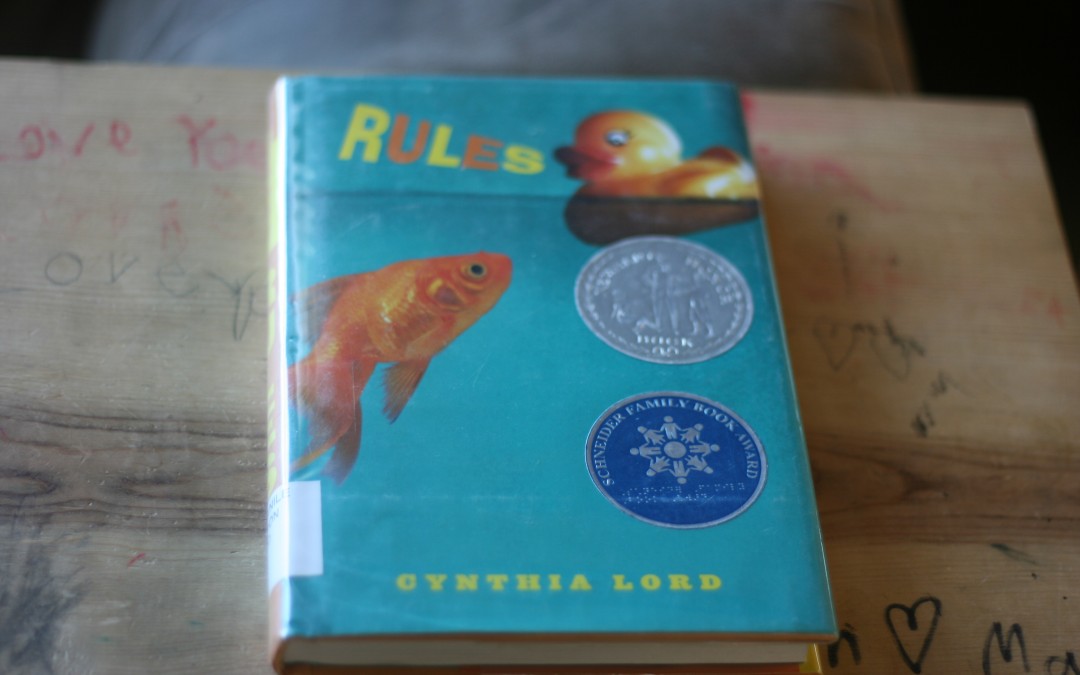
by Rachel Toalson | Books
My favorite genre to read is middle grade fiction. If you’ve been around a while, that’s no surprise. My favorite middle grade fiction to read is the kind that burrows in your heart and doesn’t let go—and recently I read two books that won’t leave me be.
The first is one I read aloud to my boys during their lunch time read-aloud block. Rules, by Cynthia Lord, was named a Newbery Honor book in 2007. Twelve-year-old Catherine would like nothing more than to just be normal, but the problem is that she has an autistic brother who often makes that kind of life difficult. Not only do her parents have to pay much more attention to him (thus often sacrificing time with her), but sometimes he even embarrasses her in front of her friends—or potential friends. The other problem is that she really loves him.
A new girl moves in next door, and Catherine determines to be her friend, trying hard to hide her family’s abnormalities. Of course, abnormalities aren’t easily hidden. In the meantime, Catherine becomes friends with a paraplegic at her brother’s occupational therapy office by making him drawings for his communication cards, and she’s faced with her own standards of normal and abnormal. What’s so bad about being abnormal? Which would she rather be?
Rules was a beautiful story of love and acceptance and trying to work through the differences that often separate children but really don’t at all, because we’re all the same deep down. In multiple passages, as I was reading to my boys, I found myself getting choked up. Lord did a wonderful job of communicating the struggle of being the sibling or friend of a special needs kid.
What I loved most about Rules was not only that Catherine was an exceptionally compassionate big sister and friend, but she also kept a list of rules for her brother in the back of her art journal, hence the name of the book. They were social rules that are generally natural for most people, but not for kids like her brother David, who had autism. It proved her love for him.
Here’s a quote that shows you just how much Catherine loves her brother and how conflicted she feels about his autism:
“I look down between the raft boards and imagine my always-wish, my fingers reaching through the perfect top of David’s head, finding the broken places in his brain, turning knobs or flipping switches. All his autism wiped clean.
“But saying that wish brings trouble. ‘All people have a place,’ my third-grade teacher said firmly when I drew a pretend older brother in the “My Family” picture to be put out int he hallway for open house.
“I tried to tell her it was still David—but I wanted him to be able to play with me, and since I was fixing things, I made him older so he could stick up for me. But I had to draw the picture over and visit the guidance counselor instead of going to music.”
Just My Luck, by Cammie McGovern, was another book that featured an autistic brother, although the story wasn’t specifically about the relationship between the siblings. It was more of a subplot.
In Just My Luck, fourth grader Benny Barrows is not really in a great place. He’s trying to find a new best friend, he’s not really great at bike riding, even though his autistic brother is, and he also worries that his dad’s recent accident is his fault. While he’s trying to work through all the emotions and confusion of school—the girls are acting weird this year, he says—and how to handle an autistic brother and what to do about finding a true friend, his dad winds up back in the hospital, and Benny has to decide how far he’s willing to go—for both his family and himself—to carry on.
After reading Just My Luck earlier this summer, I added it to my two older boys’ reading lists. It’s a fantastic read full of humor, truth, inspiration and the art of perseverance. My 9-year-old read it in two days, because Benny, the main character, loves doing stop motion animation, and so does my son. I think he found a kindred spirit in Benny, and I love when books can provide that for my children.
What I liked most about Just My Luck was that it was a sweet story of a family. I loved the bonds between Benny and his brothers. He was the youngest of three, and while his older brother was a bit hands-off, as most boys in high school would be, he came into the picture when it really mattered. Benny’s middle other, George, was autistic, and it was heartwarming to see Benny relate to George at both school and at home.
Both of these books were lovely reads not only for middle grade readers but also for people like me, who prefer reading kid-lit over almost anything else.
I hope you enjoyed these book recommendations. Be sure to pick up your free books from my starter library and visit my recommendation page to see some of my best book recommendations. If you have any books you recently read that you think I’d enjoy, leave them in the comments and I’ll add them to my list.
*The books mentioned above have affiliate links attached to them, which means I’ll get a small kick-back if you click on them and purchase. But I only recommend books I enjoy reading myself. Actually, I don’t even talk about books I didn’t enjoy. I’d rather forget I ever wasted time reading them.
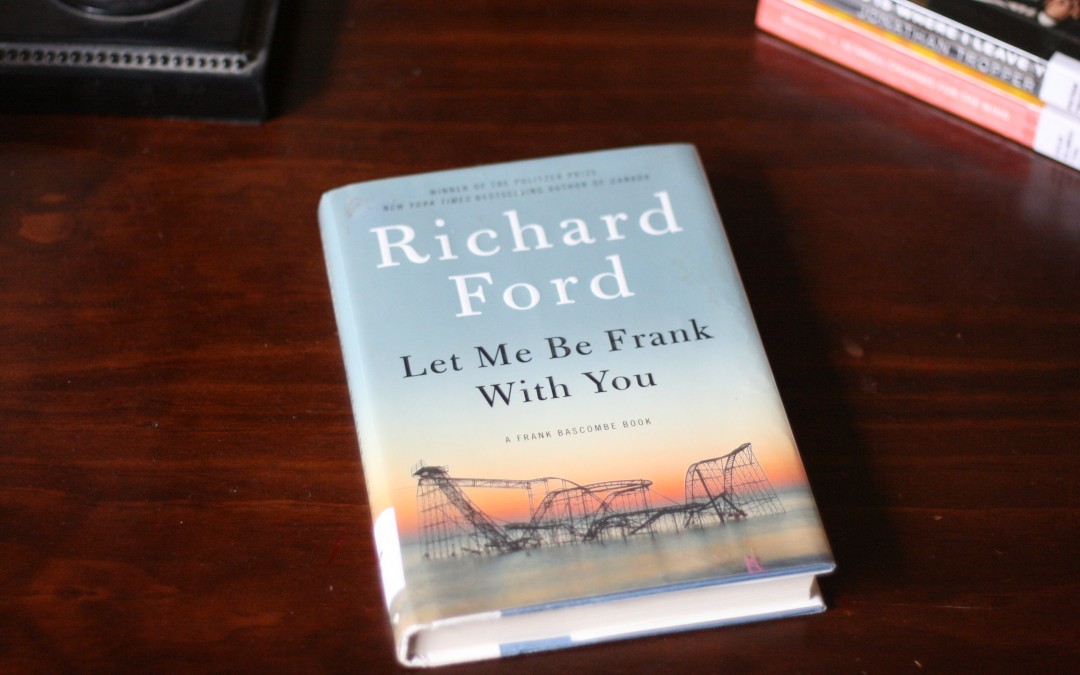
by Rachel Toalson | Books
I’ve been studying prize-winning books this year, taking them apart, learning what I can and letting their stories settle into me. Recently I finished two adult books written by Pulitzer Prize winners.
The Known World, by Edward P. Jones, won the Pulitzer back in 2004. I know this is an old book. It’s been on my list forever, and I finally got around to it.
It is very clear why Jones won the Pulitzer. He is a masterful storyteller and weaves an entire culture into a book. The Known World takes place on a slave plantation during the historical time when slaves were a normal and accepted part of society. Jones builds a world so believable that sometimes The Known World reads very much like a historical text, which I found fascinating. He mentions characters as if they actually exist, weaving in historical events to ground the plot in something that feels like it’s a natural part of history.
The book begins with the death of a slave master, who was a slave himself but bought his own freedom and then came upon wealth by working hard and, eventually, purchased his own slaves. This, of course, was a source of slight tension between him and his slaves—a black man owning slaves was not seen as an empathic thing in those days.
Throughout the book, Jones weaves together many intersecting story lines, examining not only life on the slave plantation but also the intriguing dynamic of the town in which the story takes place and how the sheriff deals with things like slaves escaping and men stealing slaves and, sometimes, free men, and selling them before the authorities can do anything about it. Several horrific acts happened in the book, all characteristic of that time. So The Known World is not just a commentary on the state of human affairs during slave times but also a lesson in the horrors of history.
What I like most about the book is that Jones would take a character involved in a scene, and he would strip them out of the scene for a minute and show readers their future. It was fun to see how their future was impacted by their present and how they were this one particular person at this moment in time, but they would become someone completely different. Someone better, most of the time. It lent a feeling of hope to all the tragedy in the book.
This story took a while to read, because it’s very dense, with lots of great characters and stories and so much wonderful commentary by the author. The Known World is one of those books that will need a little time to sit and unfold in a mind and a heart. Jones highlights part of our history in a way that is horrific and yet beautiful, giving us a story that tells of slave people resilient enough to dream of a better life than slavery.
Here’s one of my favorite quotes from the book:
“When he, Moses, finally freed himself of the ancient and brittle harness that connected him to the oldest mule his master owned, all that was left of the sun was a five-inch-long memory of red orange laid out in still waves across the horizon between two mountains on the left and one on the right.”
It’s a beautiful description of summer isn’t it? You can just see the waves of the sunset. It’s a perfect example of Jones’s storytelling
Let Me Be Frank With You, by Richard Ford, did not win the Pulitzer Prize but was a finalist last year. It’s the story of Frank Bascombe, wandering through life after a hurricane hits close to where he lives. It’s told in four rich, entertaining narratives.
In the first, Frank is meeting with an old friend of his to whom he sold his old beachfront property that’s now been completely destroyed by the hurricane. In the second one, he has a visit from a woman who used to live in his house, and she tells him an appalling story about something that happened when she was a child, in the basement of his house. In the third narrative, Frank goes to visit his ex-wife and gives readers a hilarious look at his underground hatred of her. In the last, he comes to terms with a dying acquaintance who shares a secret with him right before he dies—a confession of sorts.
Frank Bascombe is probably one of the best characters I’ve read in a long time. He had a hilarious voice and interjected commentary on growing older, the state of society and how the people of the world relate to each other, all of which I found delightfully entertaining. I love Frank. I’ll have to read more of Frank, and, thankfully, there are more books with Frank in them because Ford wrote Frank as a series.
Here’s Frank commenting on stress—a great example of why I love him so much:
“(What isn’t ignited by stress? I didn’t know stress even existed in my twenties. What happened that borought it into our world? Where was it before? My guess is it was latent in what previous generations thought of as pleasure but has now transformed the whole psychic neighborhood.)”
Here’s another, where he’s talking about growing older:
“I don’t look in mirrors anymore. It’s cheaper than surgery.”
And here’s one more, where he’s talking about an old dying acquaintance he really can’t stand:
“Mike’s fingers are slender and pretty like a girl’s and have trimmed, pink, well-tended nails. He is a rare breed of asshole.”
You can’t beat that kind of voice.
I hope you enjoyed these book recommendations. Be sure to pick up a free book from my starter library and visit my recommends page to see some of my favorite books. If you have any books you recently read that you think I’d enjoy, contact me. I always enjoy adding to my list. Even if I never get through it all.
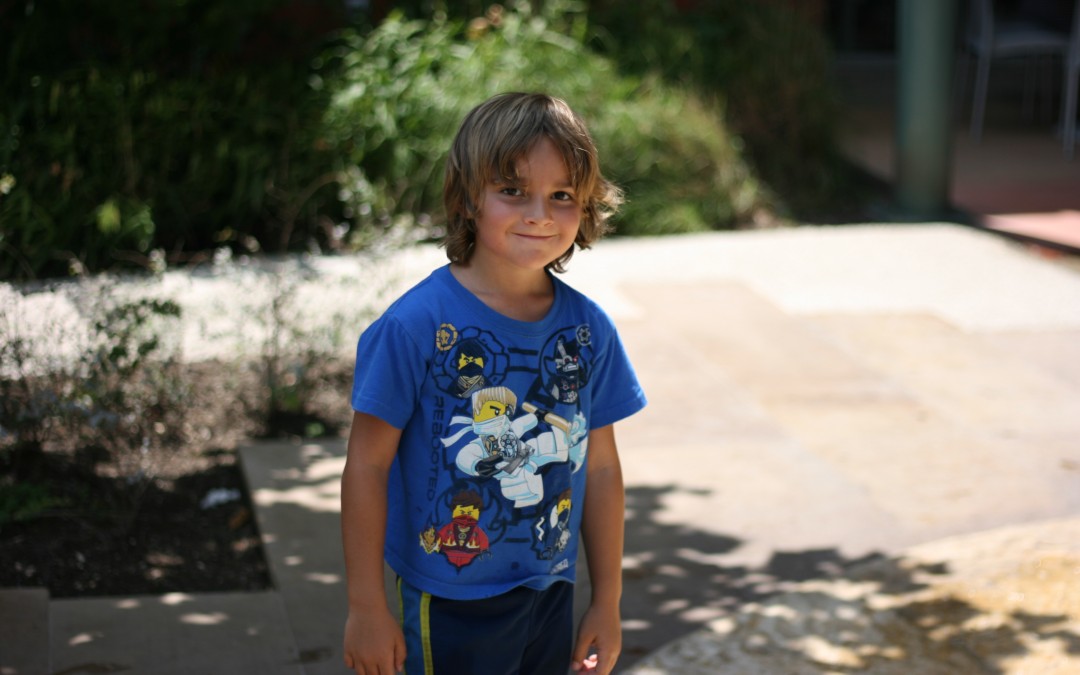
by Rachel Toalson | Books
Every year my boys and I sit down and make a summer reading list for them, with both books of their choosing and books of my choosing.
My 5-year-old is a great reader. He excelled in his first year of school this year, and I knew that he was ready to be challenged a bit with his reading list. He is still a very early reader and was hesitant to pick up chapter books. He wanted to keep his list to picture books. So I told him we could pick a couple of picture books, but he should try some more difficult reads, because I knew he could do it.
And then I put one of Mary Pope Osborne’s Magic Tree House books in his hand, and I’ve lost him to Magic Tree House for the rest of the summer. Not really, but he loves those books, and he’s chosen to populate his section of his summer reading list with Magic Tree House.
I chose a few more difficult reads for him this summer, just to challenge him. I chose:
1. A Light in the Attic, by Shel Silverstein
2. Dinosaurs Before Dark, by Mary Pope Osborne
3. Little Bear collection (for early readers)
4. Frog and Toad collection (for early readers)
5. The Knight at Dawn, by Mary Pope Osborne
6. The Miraculous Journey of Edward Tulane, by Kate DiCamillo
7. Three Tales of My Father’s Dragon, by Ruth Stiles Gannett
8. Fantastic Mr. Fox, by Roald Dahl
Some of these might seem a little advanced for a 5-year-old, but he’s also a kid who perseveres. He tries hard at everything he does, and I know that he’ll be able to get through his list before the end of the summer. In fact, he’s already done with four of these.
I wanted to take a minute to say that summer reading is so important for kids. They get out of school, and it’s all great to have free play and to spend some time outside, but there should also be a time, every day, when they’re sitting down to read. Reading is so great for the expansion of a mind, to give kids something to think about, to help them gain perspective and, also, learn the art of story. In our house, we block off one hour every afternoon for silent reading time, and then another fifteen minutes every night for silent reading.
Silent Reading may not happen easily without days and days of practice—because it’s taken us quite a while to get where we are—but it will happen if you’re willing to put in the practice. We’ve been practicing so long now that even our infant pulls out his books when the announcement comes that it’s time for Silent Reading.
And it’s definitely worth it, because not only are my kids broadening their minds and practicing the skill of reading, but I also get a chance to read. I’m always thankful for every moment I get to pull out a book and get lost in the pages.
I hope you enjoyed this look at my 5-year-old’s summer reading list. Be sure to pick up a free book from my starter library and visit my recommends page to see some of my favorite books. If you have any books that must go on my summer reading list, contact me. I always enjoy adding to my list.
*The books mentioned above have affiliate links attached to them, which means I’ll get a small kick-back if you click on them and purchase. But I only recommend books I enjoy reading myself. Actually, I don’t even talk about books I didn’t enjoy. I’d rather forget I ever wasted time reading them.







